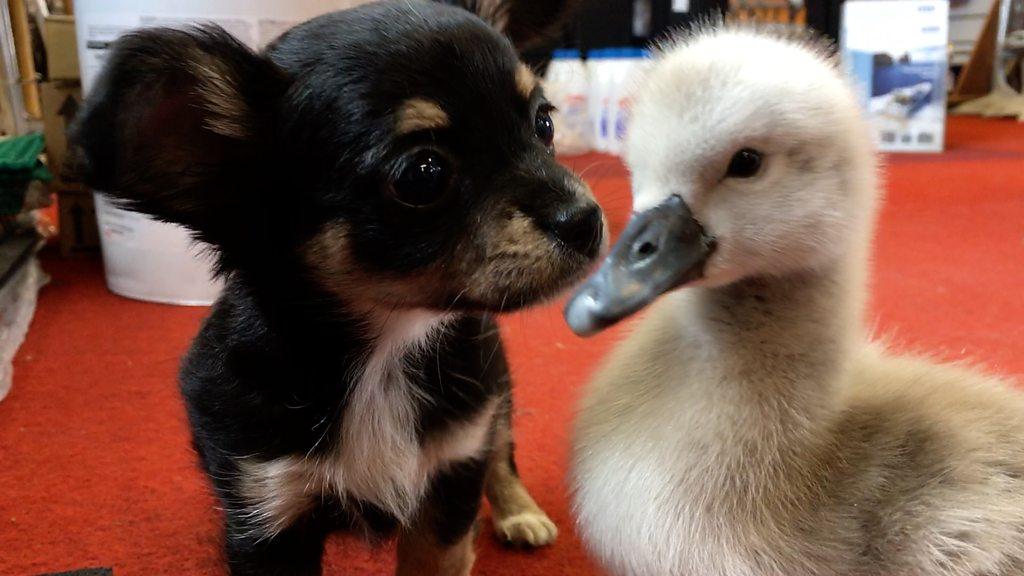Man rescues baby cygnet that was 'left behind'
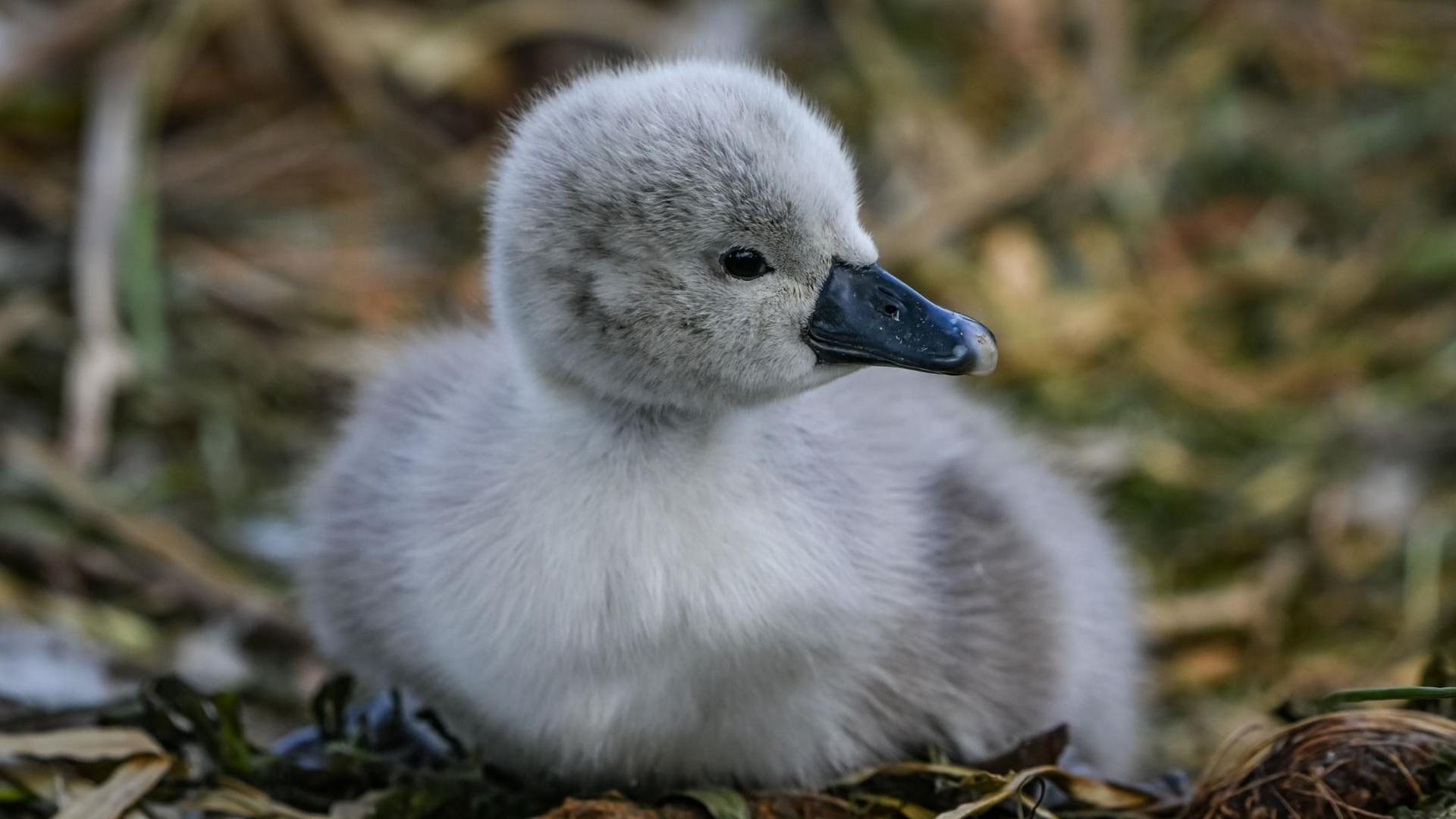
The cygnet was the last to hatch and needed a little help, his rescuer said
- Published
A new-born cygnet "left behind" by its family after it "could not keep up" with the others was rescued by a man, hand-reared and returned safely to its parents and siblings.
The baby swan was the last of six to hatch near Jones Boatyard in St Ives, Cambridgeshire, and had to be encouraged from its shell by its mother.
Rob Adamson, known as "the swan man" lives and works at the yard, and said after watching the weak youngster get left behind and eyed up by predatory crows and herons, he took it in.
"I couldn't leave it, and after two days it gained strength so I returned it - and now you'd never know it was the runt - they are all doing so well together," he said.
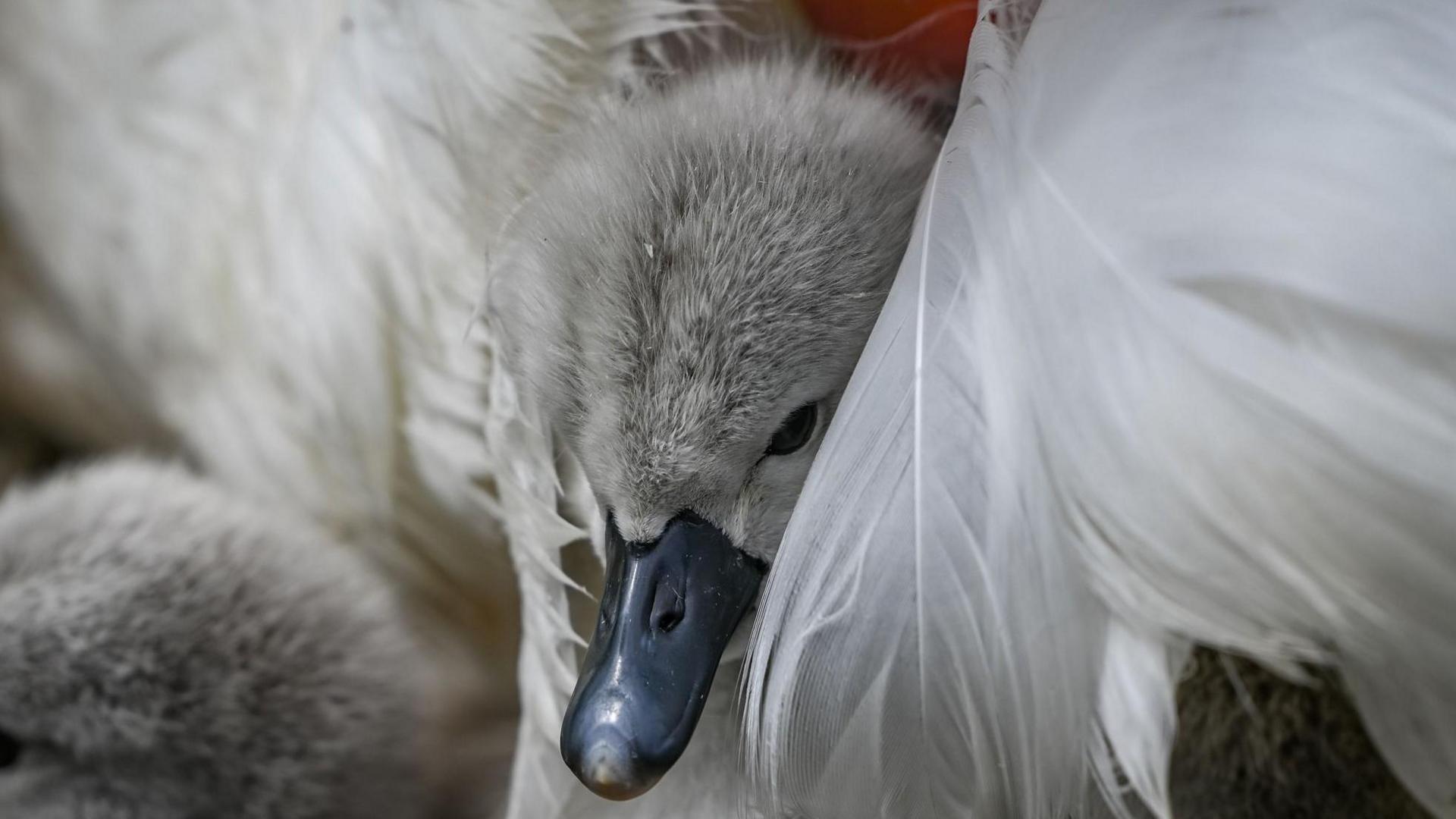
Bobbly was the last of six cygnets to hatch, and "the runt", his rescuer said
Mr Adamson has a history of looking after the swans and other wildlife at the boatyard on the River Great Ouse, having brought up "Sid", an abandoned cygnet, and built a raft to save a nest threatened by flooding.
He had been checking regularly on the latest nest but noticed that while five cygnets hatched and were happily plumping their feathers, one egg was still intact.
Mr Adamson watched as the mother swan trod on the last egg and then tapped it with her beak to allow the youngster to come out.
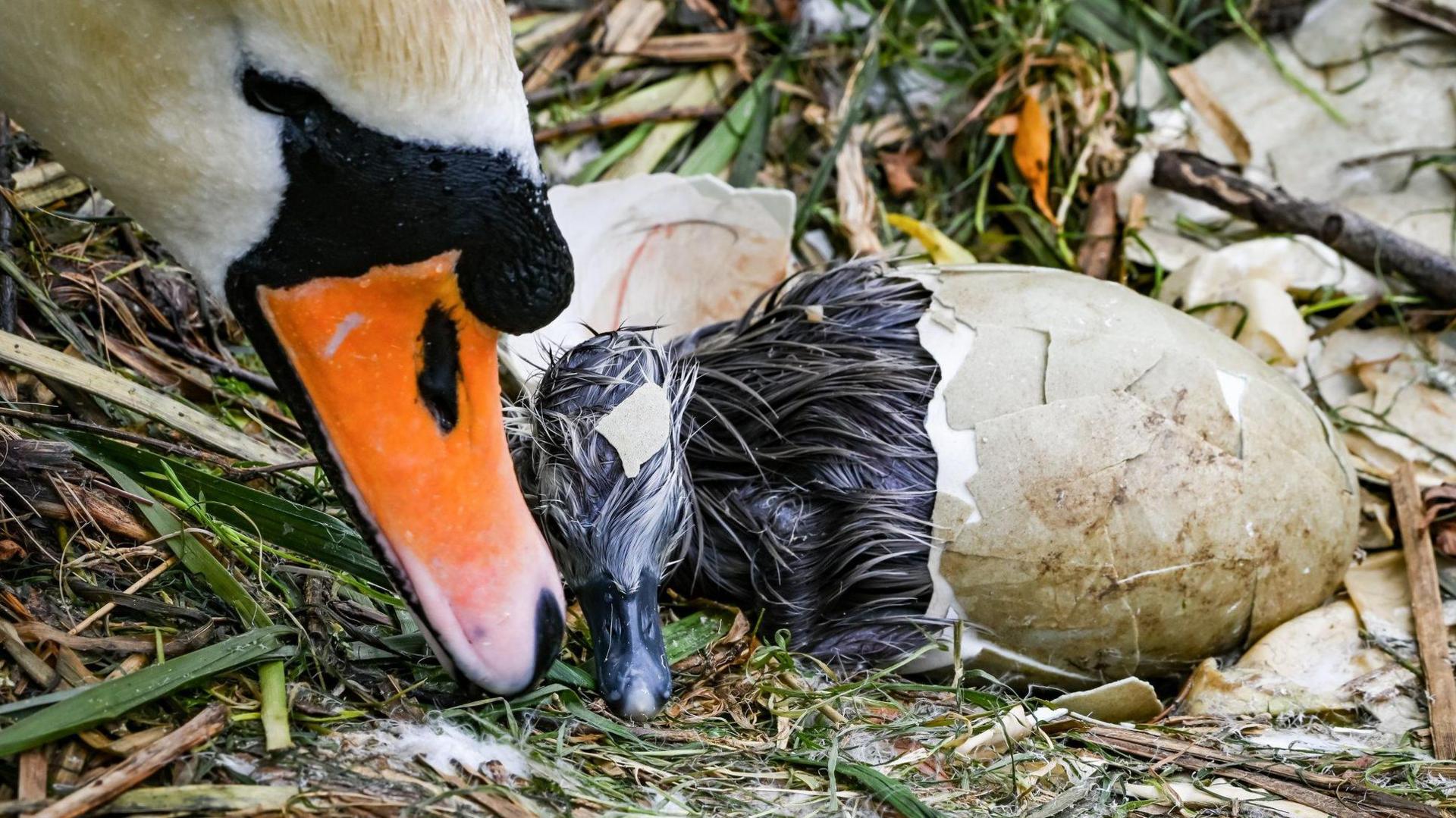
"Very few people see this intimacy", said Mr Adamson, after photographing the mother help the final chick to hatch
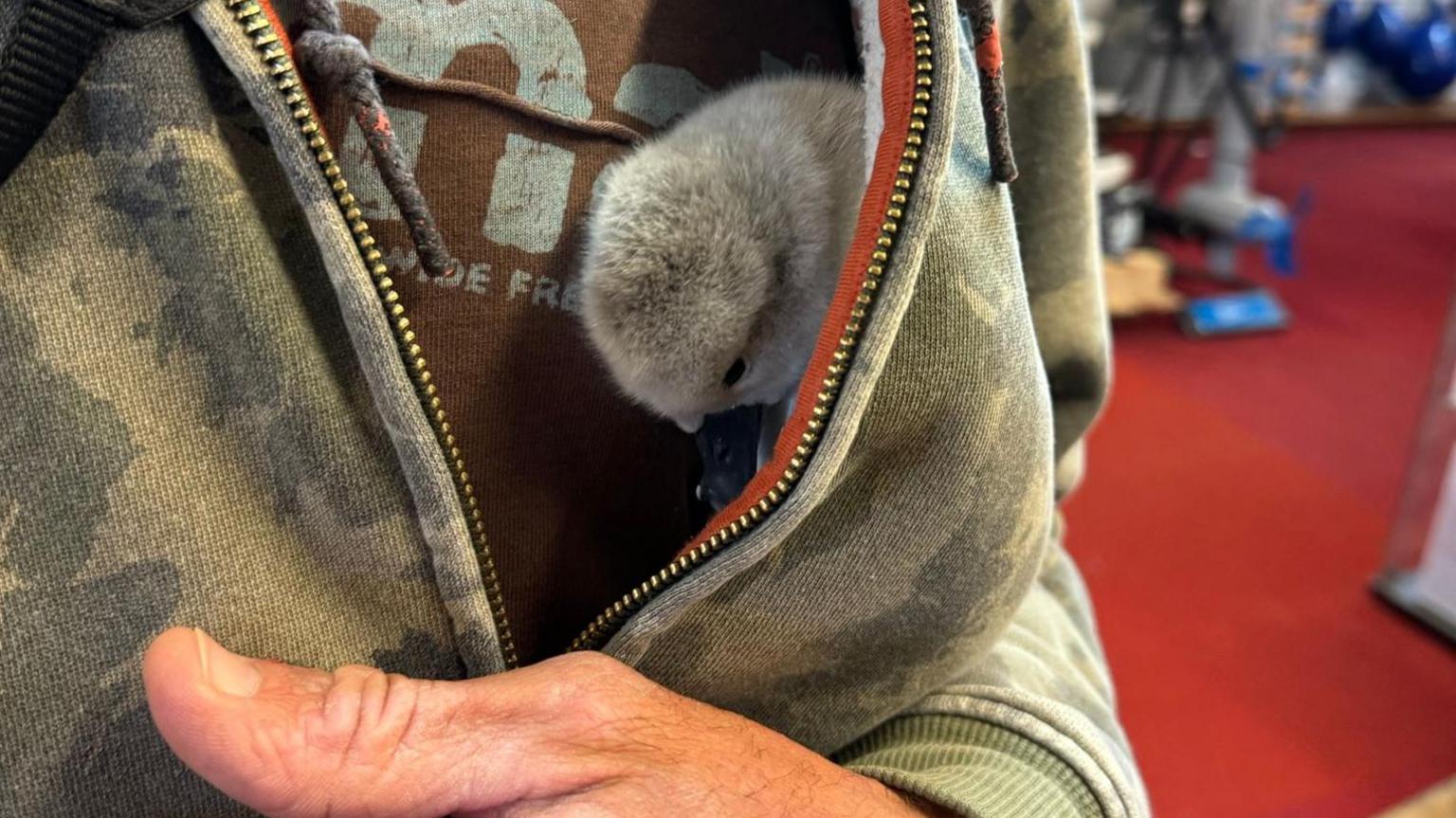
Mr Adamson said as soon as he put the tiny swan in the warmth of his jacket, it was like "taking him under my wing"
The self-confessed "wildlife nut" had been observing the swans for years, and said he had watched the latest nest for several weeks, so the parents were not "bothered in the slightest" by his presence.
"But I kept seeing this little one left behind in the nest because he just couldn't keep up, and with the crows circling, I couldn't leave him there - he'd have been a gonner," Mr Adamson said.
Even though he has previous experience with rearing a cygnet, he said he "took advice from former RSPCA staff to make sure what I was doing was the right thing - and they said it was".
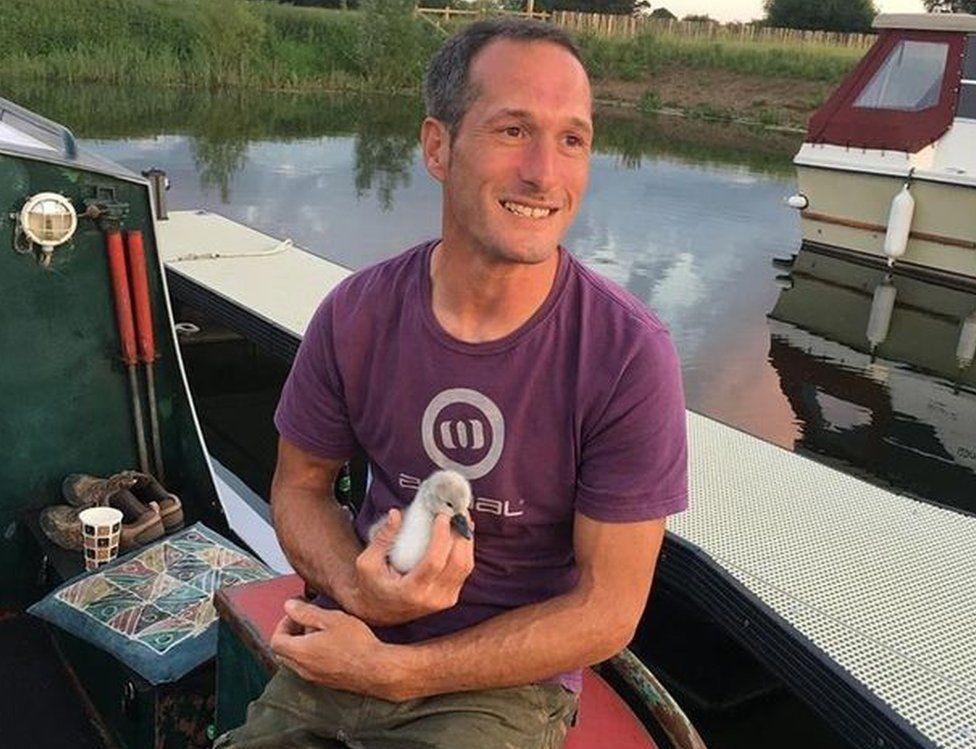
Mr Adamson once hand-reared an orphaned cygnet he named Sid
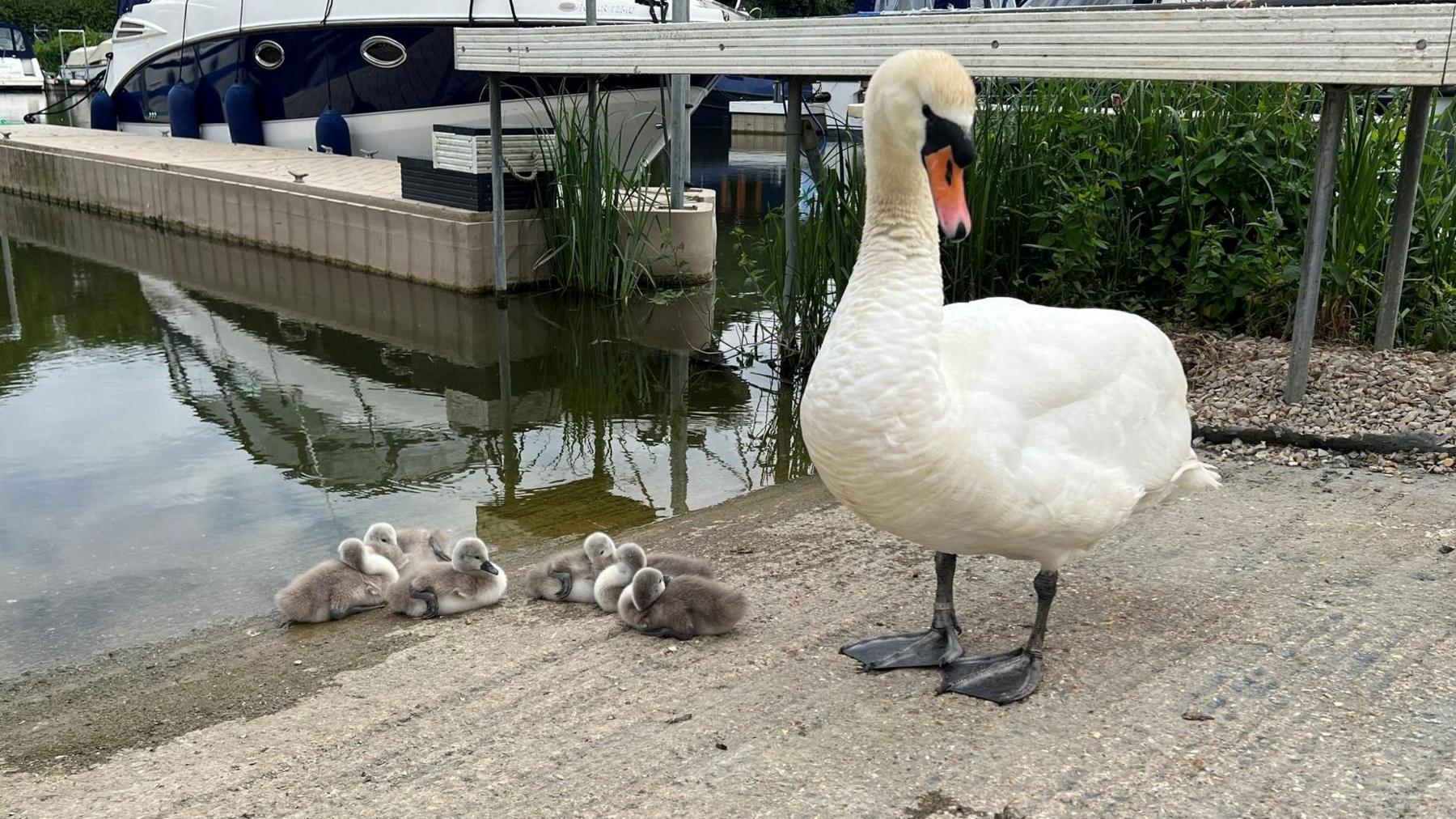
The six cygnet siblings are now almost identical, Mr Adamson said
Mr Adamson said he "tried not to let the cygnet see me too much, because I didn't want it to get attached to me", and after two days of nurturing, he said the bird "looked as strong as the others", so he returned it to the nest site.
"He was taken in straight away," he said.
"A week later, you could hardly tell the six of them apart, but I think I can still recognise Bobbly.
"I named him that because when he first took to the water he was so wobbly I thought he would capsize - but now they are all doing so well.
"It's just such a thrill that I get to do this - and see all of this."
Follow Cambridgeshire news on Facebook, external, Instagram, external and X, external. Got a story? Email eastofenglandnews@bbc.co.uk, external or WhatsApp us on 0800 169 1830
- Published8 August 2021
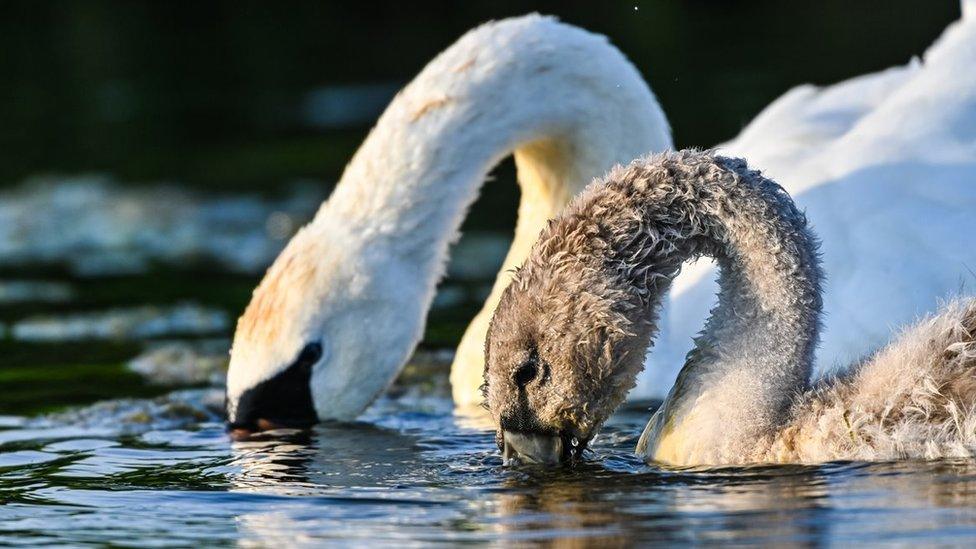
- Published18 May 2021
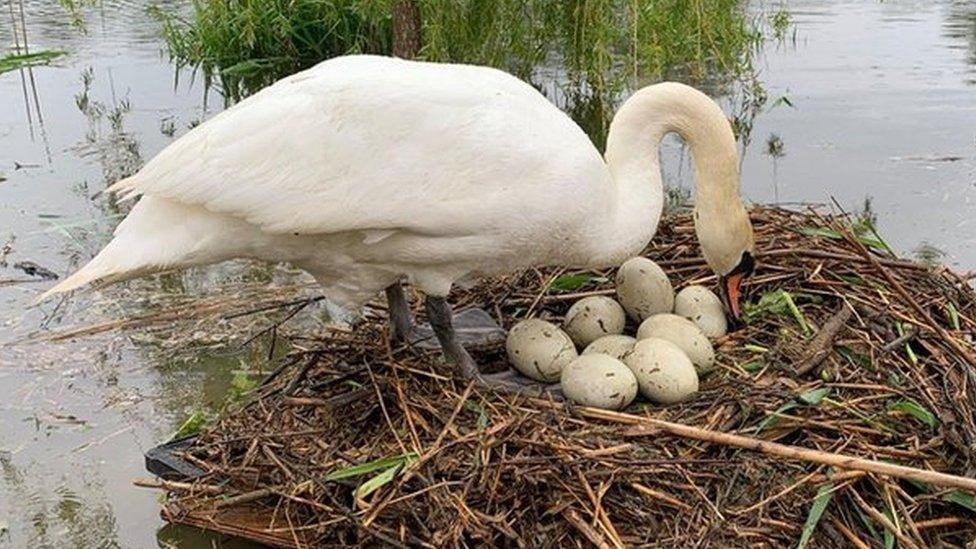
- Published7 June 2018
